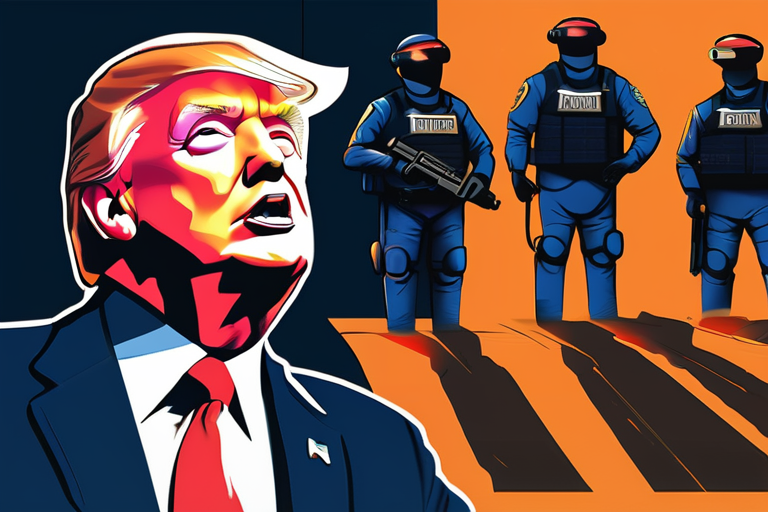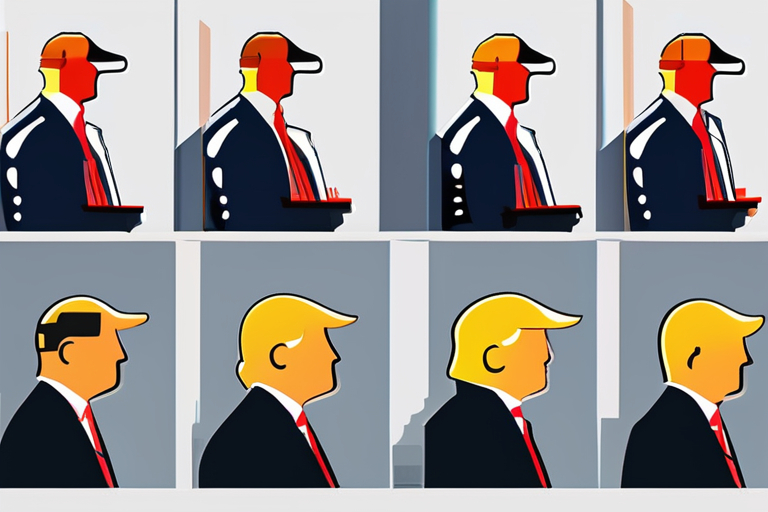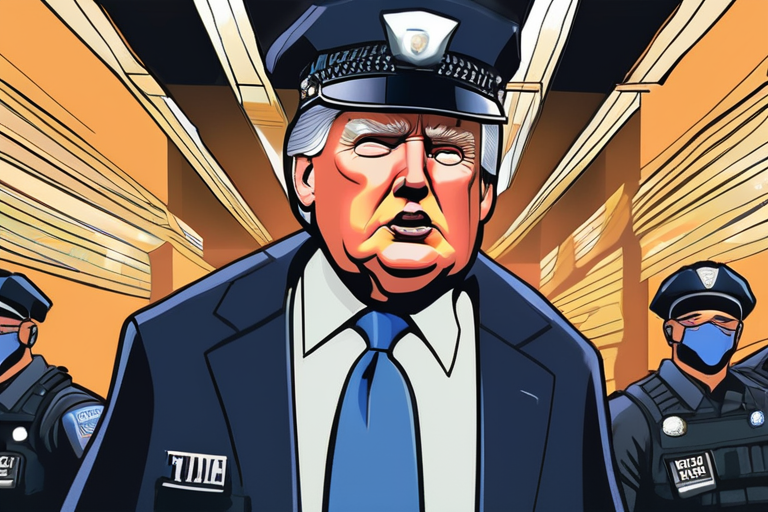Trump's National Police Force: A Growing Concern for Businesses and Immigrant Communities
The Trump administration's efforts to create a national police force through partnerships with U.S. Immigration and Customs Enforcement (ICE) have raised significant concerns among businesses, immigrant communities, and experts worldwide. According to recent reports, the administration is expanding its network of state and local police agencies to target immigrants, including those from non-criminal backgrounds.
Financial Impact:
The financial implications of this move are substantial. A study by the American Civil Liberties Union (ACLU) estimates that the Trump administration's deportation agenda has cost taxpayers over $1 billion since 2017. Moreover, a report by the Center for American Progress found that the economic impact of deporting immigrants with U.S.-born children is estimated to be around $2.2 trillion in lost GDP by 2030.
Company Background and Context:
The Trump administration's efforts to create a national police force are part of its broader agenda to crack down on immigration. The administration has been partnering with state and local agencies, including those typically tasked with environmental protection, lottery control, and gaming, to target immigrants. This move has raised concerns among businesses that rely heavily on immigrant labor.
Market Implications and Reactions:
The market implications of this move are far-reaching. A survey by the National Restaurant Association found that 71% of restaurants in the United States rely on immigrant workers, who make up around 25% of the industry's workforce. The Trump administration's deportation agenda has already led to a decline in immigration applications, which could further exacerbate labor shortages in key industries.
Stakeholder Perspectives:
Experts and stakeholders are sounding the alarm about the potential consequences of creating a national police force. "This is a recipe for disaster," said Charis Kubrin, a professor at the University of California, Irvine who studies immigration and crime. "It's not just about targeting immigrants; it's about creating a culture of fear and mistrust among communities."
Future Outlook and Next Steps:
As the Trump administration continues to push forward with its deportation agenda, businesses and immigrant communities are bracing for impact. The future outlook is uncertain, but one thing is clear: the consequences of this move will be far-reaching and devastating.
In a statement, the American Civil Liberties Union (ACLU) said, "The creation of a national police force is a threat to our democracy and our economy. We urge the Trump administration to reconsider its deportation agenda and work towards a more inclusive and equitable immigration policy."
As the world watches this unfolding drama, one thing is clear: the stakes are high, and the consequences will be far-reaching.
Global Context:
This move by the Trump administration has sparked international concern. In Europe, countries such as Germany and France have been grappling with their own immigration policies, while in Asia, countries like Japan and South Korea have implemented stricter immigration controls.
In a statement, the European Union's Commissioner for Migration, Dimitris Avramopoulos, said, "We are closely monitoring the situation in the United States and urge all parties to respect international law and human rights."
Cultural Background:
The cultural background of this move is complex. The Trump administration's deportation agenda has been criticized by many as a form of xenophobia and racism. In response, immigrant communities have come together to organize protests and rallies against the administration's policies.
In an interview with CNN, a spokesperson for the National Immigration Law Center said, "This is not just about immigration; it's about human rights. We urge the Trump administration to respect the dignity and humanity of all individuals, regardless of their immigration status."
International Perspectives:
The international community has been watching this drama unfold with great interest. In a statement, the United Nations High Commissioner for Refugees (UNHCR) said, "We are concerned about the impact of these policies on vulnerable populations, including refugees and asylum seekers."
As the world grapples with its own immigration challenges, one thing is clear: the creation of a national police force in the United States has significant implications for businesses, immigrant communities, and the global economy.
*Financial data compiled from Theintercept reporting.*



 Hoppi
Hoppi

 Hoppi
Hoppi

 Hoppi
Hoppi

 Hoppi
Hoppi

 Hoppi
Hoppi

 Hoppi
Hoppi











